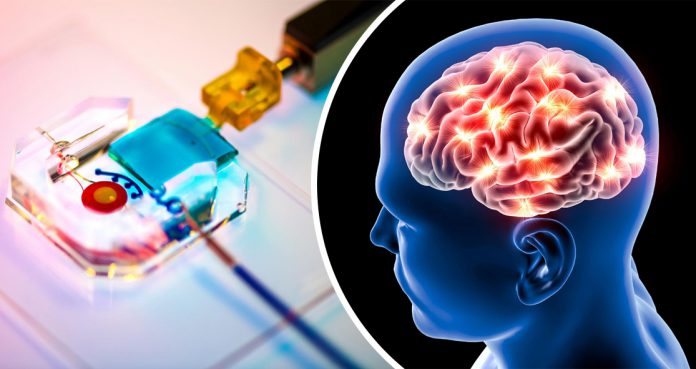Researchers from the United States and the Republic of Korea developed a new device that could control brain cells and neural circuits in animals with a tiny implant in the brain controlled by a smartphone.
According to the researchers, the wireless device could be useful in speeding up to uncover certain brain disorders – such as Alzheimer’s, Parkinson’s, depression, and pain.
Their study was published Monday in the journal Nature Biomedical Engineering.
The scientists installed a Lego-like replaceable drug cartridge to the neural device, which allowed them to study the same brain circuits without getting concerned about running out of medications.
The drug cartridges were assembled into a brain implant for mice using a soft and ultra-thin probe that is as thick as a human hair and consists of microfluidic channels with tiny LEDs for drug doses and light delivery.
With the help of a smartphone and Bluetooth connection, the researchers were able to trigger any specific combination or sequencing of light along with drug deliveries without need to be physically present in the lab.
The device allowed researchers to make automated animal studies, which helped them to analyze the positive or negative behavior of animals by triggering of light and drug delivery. Michael Bruchas from the University of Washington School of Medicine said, “It allows us to better dissect the neural circuit basis of behavior. We are also eager to use the device for complex pharmacological studies, which could help us develop new therapeutics for pain, addiction, and emotional disorders.”























